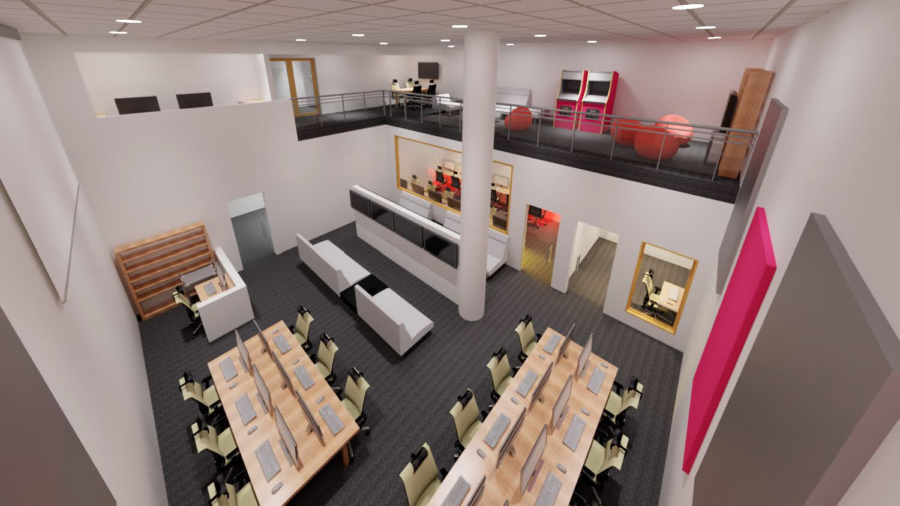Iowa State esports community sees growth with construction of new gaming space
August 28, 2019
Esports is quickly expanding its presence at Iowa State. Construction for a student gaming center is underway with a hopeful completion date in the fall of 2020. Esports intramurals, which saw it’s introduction last semester with Rocket League, will see the introduction of Super Smash Bros. and Fortnite this semester.
The gaming space in Beyer Hall will accommodate casual and competitive gaming, with a dedicated esports room and a walk-in gaming area. Gaming PCs, gaming consoles, board games and card games will all be present in the gaming space.
“We want the recreation center and specifically the gaming room to be where you can just come and hang out,” said Jason Vlastaras, associate director of student success. “Students have class and/or work and then they have home. We want this space to be your third place.”
A survey sent to 25 percent of the Iowa State student body to gauge interest in the gaming space found that 92 percent of respondents considered themselves some type of gamer, 64 percent of respondents played video games for over five hours a week and 87 percent of respondents said they would support the construction of a gaming space on campus.
“We’re trying to look at this from a wellness perspective,” Vlastaras said. “As ambassadors for wellness, the recreation services team feels like it’s our responsibility to be able to provide something recreational like the gaming space, where you’re able to do it in a positive atmosphere.”
Building a positive atmosphere includes collaborating with counseling services and student wellness to address issues such as gaming addiction.
The esports expansion began with a collaboration between recreation services and the gaming and esports club, previously known as Game Renegades. Rebranding of the club came with the club’s induction to the sports club council, which will give the club more backing for increased participation in esports events. The club currently fields teams to participate in independently run college esports leagues including Rainbow Six: Siege, Counter-Strike: Global Offensive, League of Legends, DOTA 2 and Overwatch.
“I started to get an understanding of the scope of engagement within Gaming Renegades exists,” said Vlastaras. “Students are participating in these activities and they’re playing video games, but they’re not necessarily doing it together and they’d prefer to do it together.”
Socialization ranked among the top drawing aspects of the gaming space survey that Thomas Owens, freshman and quality design chair of the gaming and esports club, values.
“It’s a totally different feeling of cohesion and working as a team and a unit when instead of playing with your team online and in the Discord server, when somebody makes a play I can reach over and give them a fist bump,” Owens said.
Owens sees the Iowa State gaming community on the up-swing, with the group’s Discord server, a text and voice chat application for gamers, increasing from 800 to 900 members over the summer. The club hosts an open LAN on the last Saturday of every month and the latest event was attended by over 500 gamers from 20 different universities.
“99 percent of the club is never playing alone. You’re still getting the social interaction you’d get outside. You’re making friends,” Owens said. “I can ping the Discord saying, ‘hey who wants to meet at the MU?’ and I’ll get five responses saying ‘yes when does XYZ time work?’
“We’re looking at top-of-the line hardware, we’re looking at esports industry standard gear. The fact that I’ll be able to bring my own mouse and keyboard, hop in a bus or a car, get over there and say, ‘lets play some games together.’”







